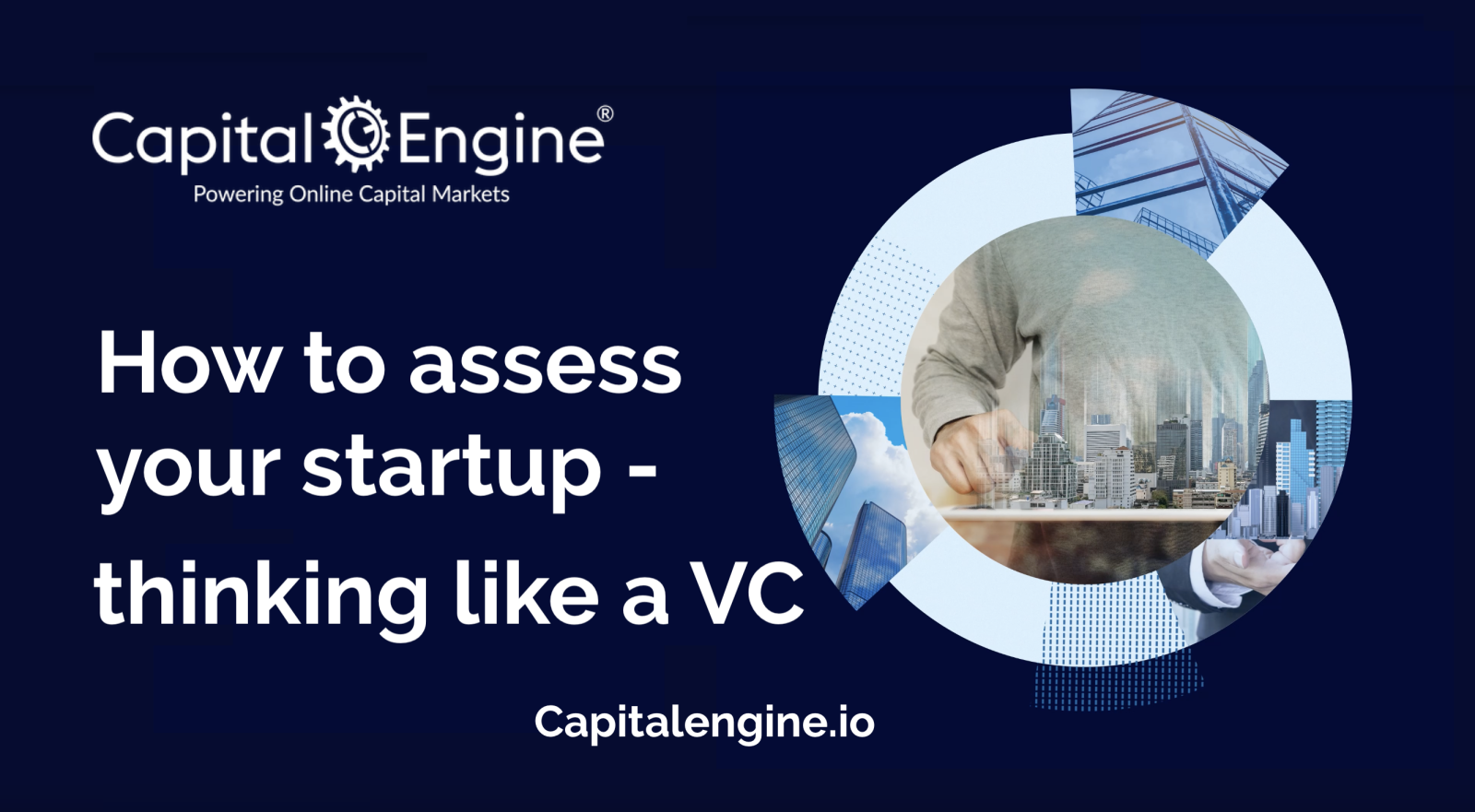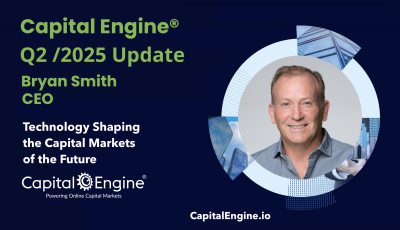Education

Funding from a venture capital firm can be a significant milestone for any startup. But how exactly do Venture capitalists (VCs) decide which startups to invest in? VCs use a rigorous process to evaluate startups, looking at factors like team, market potential, traction, and more before writing any checks.
VCs evaluate startups using a combination of factors and criteria to determine which ones are worthy of investment. While the specific process can vary from one VC firm to another, here are some common elements that VCs consider when making investment decisions:
Team: VCs pay significant attention to the startup's founding team. They look for experienced, capable, and passionate entrepreneurs who have the necessary skills and vision to drive the company's growth. A strong team with a track record of success is more likely to gain investment interest.
Market Potential: VCs assess the market size and potential for the startup's product or service. A large and rapidly growing market is attractive to investors as it offers significant opportunities for revenue and expansion.
Product/Service: The VC will evaluate the startup's product or service to understand its uniqueness, competitive advantage, and potential to solve a real problem in the market. Innovative and disruptive solutions tend to be more appealing to investors.
Traction and Milestones: VCs look for evidence of progress, such as customer adoption, revenue growth, partnerships, or key milestones achieved by the startup. The more traction a startup has, the more confidence it instills in potential investors.
Business Model: VCs analyze the startup's business model to assess its viability and scalability. A clear and sustainable revenue generation strategy is essential for attracting investment.
Competitive Landscape: Investors will study the startup's competitors and how it differentiates itself in the market. Understanding the competitive landscape helps VCs gauge the startup's potential to gain market share.
Financials: VCs review the startup's financials, including past performance, projections, and burn rate. They want to ensure that the startup has a solid financial plan and is managing its resources efficiently.
Exit Strategy: VCs are ultimately looking for a return on their investment, so they want to know the startup's exit strategy. Whether it's through an acquisition, IPO, or other means, a clear path to a lucrative exit is crucial.
Due Diligence: Before committing funds, VCs conduct thorough due diligence to verify the startup's claims, legal status, intellectual property rights, and potential risks.
Fit with Portfolio: VCs consider how the startup fits into their existing portfolio and investment strategy. They may look for startups that complement their current investments or align with specific industry sectors they are interested in.
Founder-Investor Fit: Personal connections and relationships also play a role. VCs may prefer to invest in startups where they have a strong rapport with the founders or where they see potential for a successful working relationship.
It's important to note that securing VC funding is highly competitive, and many startups go through numerous rounds of pitching and negotiation before securing investment. Additionally, the dynamics of the investment process can differ based on the stage of the startup (early-stage, growth-stage, etc.) and the VC firm's investment focus.
About Capital Engine®
Capital Engine® provides forward-thinking organizations with efficient and scalable private capital and investor management solutions, for both traditional and digital assets.
Built for high-performance capital raising, our technology helps leverage the opportunity to better originate and showcase a diverse selection of private investment deals and offer these to investors i.e. a deal’s potential viability can be better assessed, market appetite determined and transaction promptly closed.
Our clients include broker dealers, family offices, wealth managers, incubators, accelerators, social impact and real estate funds, in providing customized SaaS solutions to power private capital and alternative investment platforms, with a strong focus on investor management services.
Interested in raising capital
Request a Call / Demo
VCs evaluate startups using a combination of factors and criteria to determine which ones are worthy of investment. While the specific process can vary from one VC firm to another, here are some common elements that VCs consider when making investment decisions:
Team: VCs pay significant attention to the startup's founding team. They look for experienced, capable, and passionate entrepreneurs who have the necessary skills and vision to drive the company's growth. A strong team with a track record of success is more likely to gain investment interest.
Market Potential: VCs assess the market size and potential for the startup's product or service. A large and rapidly growing market is attractive to investors as it offers significant opportunities for revenue and expansion.
Product/Service: The VC will evaluate the startup's product or service to understand its uniqueness, competitive advantage, and potential to solve a real problem in the market. Innovative and disruptive solutions tend to be more appealing to investors.
Traction and Milestones: VCs look for evidence of progress, such as customer adoption, revenue growth, partnerships, or key milestones achieved by the startup. The more traction a startup has, the more confidence it instills in potential investors.
Business Model: VCs analyze the startup's business model to assess its viability and scalability. A clear and sustainable revenue generation strategy is essential for attracting investment.
Competitive Landscape: Investors will study the startup's competitors and how it differentiates itself in the market. Understanding the competitive landscape helps VCs gauge the startup's potential to gain market share.
Financials: VCs review the startup's financials, including past performance, projections, and burn rate. They want to ensure that the startup has a solid financial plan and is managing its resources efficiently.
Exit Strategy: VCs are ultimately looking for a return on their investment, so they want to know the startup's exit strategy. Whether it's through an acquisition, IPO, or other means, a clear path to a lucrative exit is crucial.
Due Diligence: Before committing funds, VCs conduct thorough due diligence to verify the startup's claims, legal status, intellectual property rights, and potential risks.
Fit with Portfolio: VCs consider how the startup fits into their existing portfolio and investment strategy. They may look for startups that complement their current investments or align with specific industry sectors they are interested in.
Founder-Investor Fit: Personal connections and relationships also play a role. VCs may prefer to invest in startups where they have a strong rapport with the founders or where they see potential for a successful working relationship.
It's important to note that securing VC funding is highly competitive, and many startups go through numerous rounds of pitching and negotiation before securing investment. Additionally, the dynamics of the investment process can differ based on the stage of the startup (early-stage, growth-stage, etc.) and the VC firm's investment focus.
About Capital Engine®
Capital Engine® provides forward-thinking organizations with efficient and scalable private capital and investor management solutions, for both traditional and digital assets.
Built for high-performance capital raising, our technology helps leverage the opportunity to better originate and showcase a diverse selection of private investment deals and offer these to investors i.e. a deal’s potential viability can be better assessed, market appetite determined and transaction promptly closed.
Our clients include broker dealers, family offices, wealth managers, incubators, accelerators, social impact and real estate funds, in providing customized SaaS solutions to power private capital and alternative investment platforms, with a strong focus on investor management services.
Interested in raising capital
Request a Call / Demo
Latest Articles





